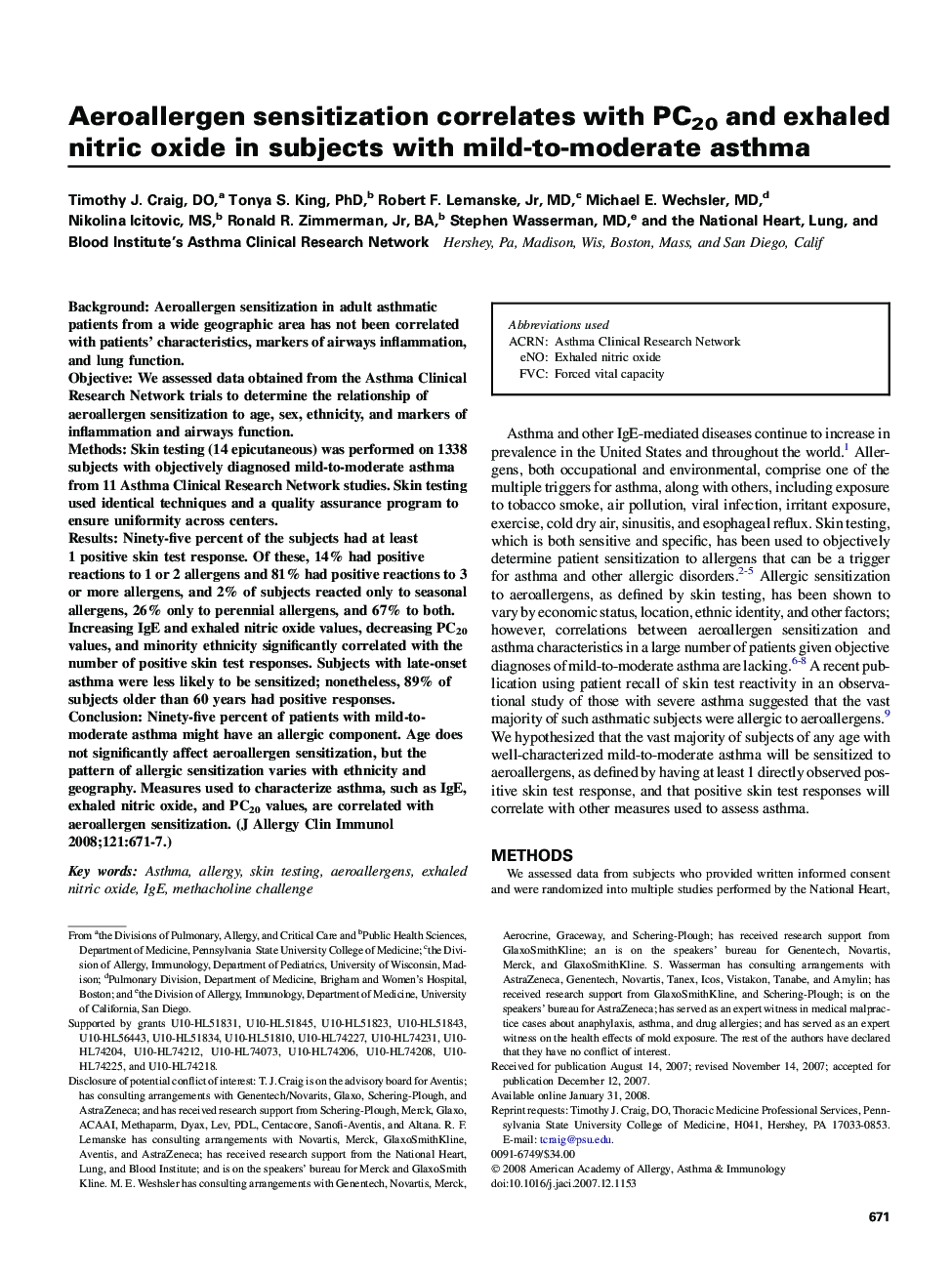| Article ID | Journal | Published Year | Pages | File Type |
|---|---|---|---|---|
| 3200722 | Journal of Allergy and Clinical Immunology | 2008 | 7 Pages |
BackgroundAeroallergen sensitization in adult asthmatic patients from a wide geographic area has not been correlated with patients' characteristics, markers of airways inflammation, and lung function.ObjectiveWe assessed data obtained from the Asthma Clinical Research Network trials to determine the relationship of aeroallergen sensitization to age, sex, ethnicity, and markers of inflammation and airways function.MethodsSkin testing (14 epicutaneous) was performed on 1338 subjects with objectively diagnosed mild-to-moderate asthma from 11 Asthma Clinical Research Network studies. Skin testing used identical techniques and a quality assurance program to ensure uniformity across centers.ResultsNinety-five percent of the subjects had at least 1 positive skin test response. Of these, 14% had positive reactions to 1 or 2 allergens and 81% had positive reactions to 3 or more allergens, and 2% of subjects reacted only to seasonal allergens, 26% only to perennial allergens, and 67% to both. Increasing IgE and exhaled nitric oxide values, decreasing PC20 values, and minority ethnicity significantly correlated with the number of positive skin test responses. Subjects with late-onset asthma were less likely to be sensitized; nonetheless, 89% of subjects older than 60 years had positive responses.ConclusionNinety-five percent of patients with mild-to-moderate asthma might have an allergic component. Age does not significantly affect aeroallergen sensitization, but the pattern of allergic sensitization varies with ethnicity and geography. Measures used to characterize asthma, such as IgE, exhaled nitric oxide, and PC20 values, are correlated with aeroallergen sensitization.
